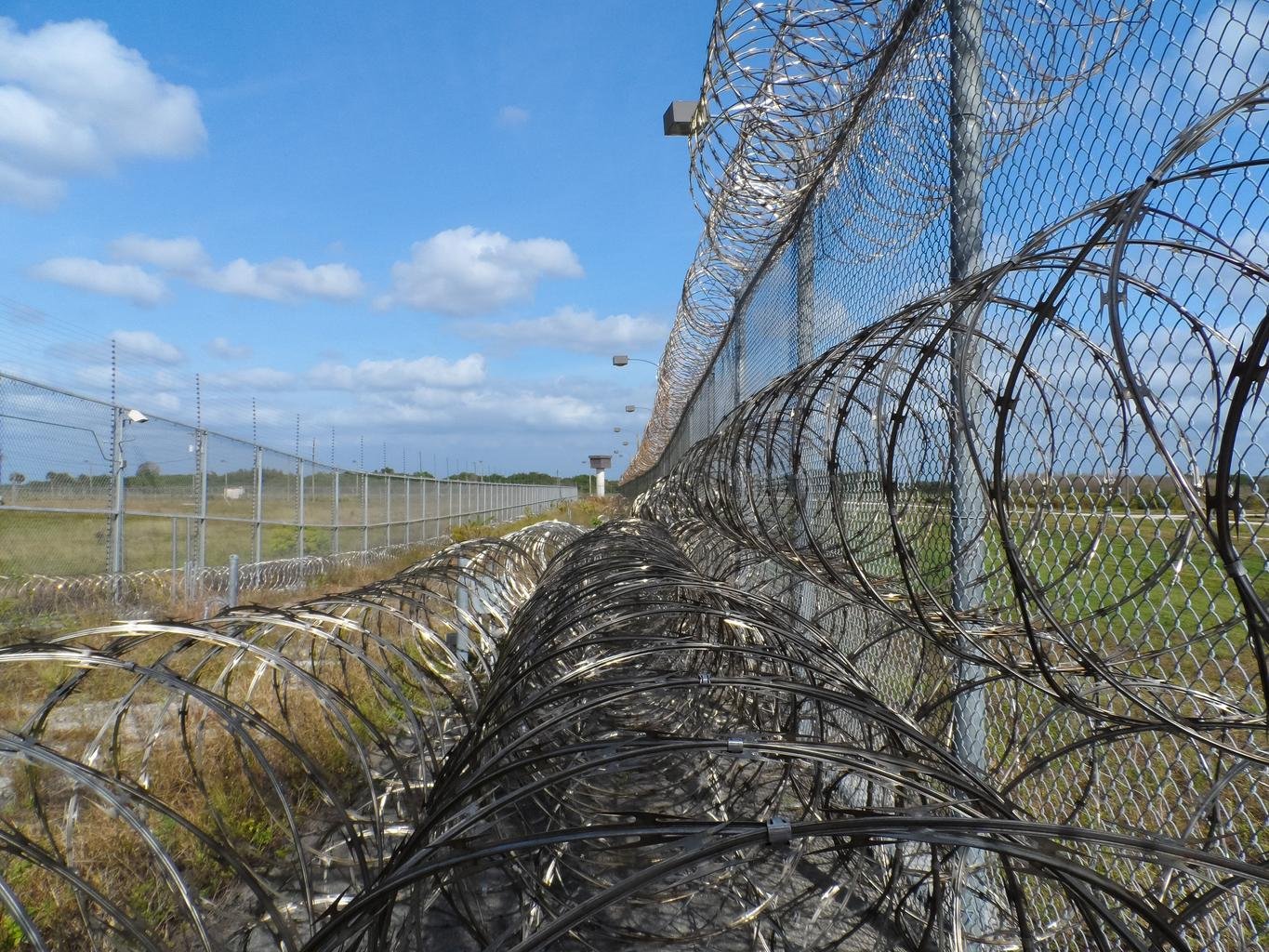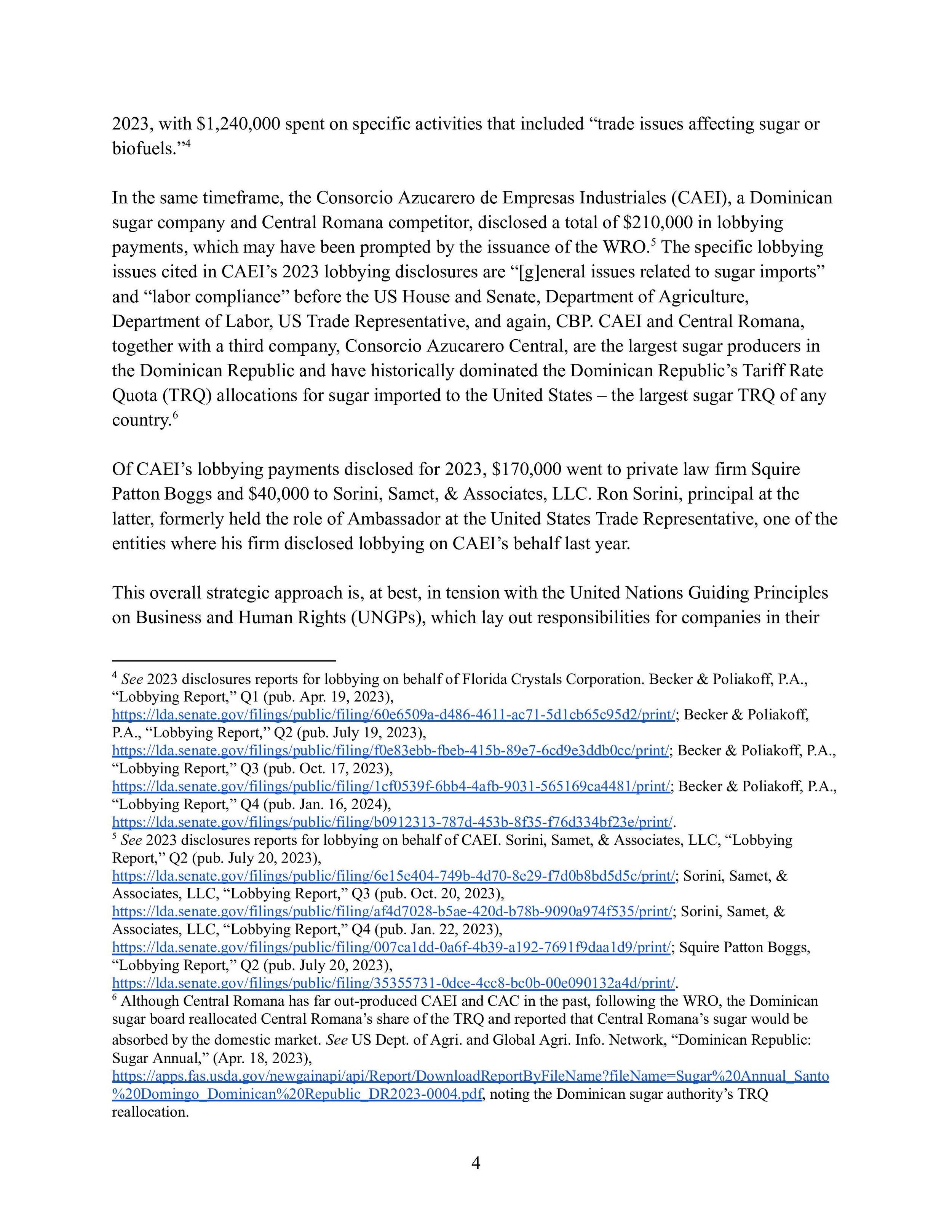This blog post provides an update on the Trafficking Victims Protection Act (TVPRA) case against five defendant seafood companies: Phatthana Seafood Co., Ltd.; S.S. Frozen Food Co., Ltd.; Doe Corporations; Rubicon Resources, LLC; and Wales & Co. Universe Ltd. It provides an overview of the harms workers faced, a history of the case, and an interpretation of the latest TVPRA amendment currently impacting this case. It concludes by discussing how the Ninth Circuit can rectify its mistakes and provide justice to the seven individuals whose lives were devastated by these corporations.
Caught in a Sea of Trafficking: Akhmad, et al. v. Bumble Bee Foods
On March 12, 2025, four Indonesian fishers filed suit in San Diego, California, against Bumble Bee Foods. They claimed they were victims of forced labor, human trafficking, and debt bondage in violation of the Trafficking Victims Protection Act (TVPRA). This case is the first human trafficking case brought against a U.S. seafood company for forced labor at sea.
MSC: The Blue Tick Deceiving Consumers
A recent report has found that MSC-certified fisheries work with fishing vessels where incidents of forced labor have been reported by fishermen. The Outlaw Ocean Project documented forced Uyghur labor in ten MSC-certified facilities in China. A 2023 report by a coalition of international environmental non-profit organizations has further critiqued the MSC for its lax environmental standards, lack of labor protections, and deception of consumers. In spite of all this evidence, the MSC continues to fail consumers by allowing them to believe that buying MSC-certified products is the sustainable option when, in reality, the fish coming from MSC-certified facilities were procured and processed in a manner comparable to those originating from non-certified facilities. Certification schemes like the MSC need either to effectively protect workers’ rights and the environment or remove themselves from occupying the space of a more effective alternative, such as a union or worker-driven model.
In November 2024, CAL and the SSA submitted a petition to the FTC to enjoin BAP for its misleading and deceptive advertising practices.
BAP is a third-party certification scheme that claims to certify each step of the aquaculture production chain, including farm, feed, hatcheries, and processing facilities. BAP touts itself as being one of the “easiest ways to know that your seafood was produced in a safe, responsible, and ethical way.” In reality, BAP-certified shrimp production processes are rife with labor and environmental abuses.
Sweet Deals, Sour Outcomes: How Speculation and Commoditization Affect Cocoa Farmers
The problem with the cocoa commodity price spike is not the increased price. Cocoa should be priced higher! But more of that value needs to go to the farmers who grow it. Outside of the commoditized market that supplies bulk quantities of cocoa to corporations such as Nestlé and Mondelez, alternative supply chain models already exist. Some smaller “premium” chocolate companies contract directly with farmers, paying up to $12,000 per metric ton of cocoa. They pay the premium price to ensure a supply of beans that are harvested by ethical, well-compensated laborers on an environmentally sustainable farm.
When the Law Works: In re Chiquita, State Torts, and a New Frontier
Beginning with the history of the case, this post covers the facts and implications of the recent unanimous verdict reached by a federal jury in In re Chiquita. The first part of the post details Chiquita’s history in Colombia, the human rights abuses associated with its relationship with the United Self-Defense Forces of Colombia (AUC), and the litigation that followed. The second part of the post considers the immediate future of this case as well as its systemic implications with a particular focus on this verdict’s implications for the use of state tort law in human rights litigation.
Human Rights Hypocrite: prison-made goods can be exported from the US but not imported
The United States is both a world leader in the protection against forced labor – and one of the world’s most practiced and committed violators. This hypocrisy is due to an inherent contradiction in U.S. law: while it is illegal to import goods produced with forced or prison labor, it is not illegal to produce goods using prison labor or export goods produced in such a manner. This inconsistency means that incarcerated workers in the United States produce products that can – and likely are – exported to other countries, where they can be sold, perhaps even labeled as “Made in USA.”
Canada Renews Efforts to Address Forced Labor in New Supply Chain Law, But Misses the Mark
Canada’s long-awaited, Fighting Against Forced Labour and Child Labour in Supply Chains Act (Act) went into effect on January 1, 2024. While it is largely a disclosure law, it also makes Canada the first country in the world to ban the importation of goods made with child labor—a bold and controversial move, discussed further below. In this blog post, we provide an overview of the two key elements of the Act and then explain the Act’s limitations compared to other supply chain legislation.
Responses to CAL’s Groundbreaking Report on Abuses in the Indian Shrimp Sector
It has only been a few weeks since we published our report and already we are seeing shifts in the industry. In the coming months, we hope to see more improvements for workers and their communities. The first step towards change is acknowledging the problem. The attention on the industry and the acknowledgement from many U.S. retailers and distributors that they need to look into their supply chains, is a beginning. As we move forward, it is imperative that companies – both U.S. and Indian – do more than make appropriate statements. They must implement changes to upend the prevailing pattern of abuse.
Can the U.S. Energy Transition Be “Just” If Critical Mineral Extraction Exploits Workers and Pollutes Communities?
While the just transition is gestured at as a solution to the climate crisis, the extraction of critical minerals that underlies the transition often violates human rights and causes environmental damage, underscoring the limitations of the growth-focused economic model. A truly just transition is ultimately a regenerative one, of ecological resilience and reduced resource consumption. But until that can be achieved, green energy supply chains must be improved. Workers and others directly impacted by the energy transition’s thirst for critical minerals must be treated with dignity, agency, and autonomy.
Imagery from Kolwezi, DRC, which has been referred to as a disappearing city, because of the encroachment of cobalt mines on its urban area.
Attribution: Map Data: Google, Airbus Technologies, 2023.
CAL se une a 35 organizaciones que firman una carta a CBP, destacando el fracaso de Central Romana para remediar el trabajo forzoso
CAL Joins 35 Organizations signing open letter to CBP highlighting Central Romana’s failure to remediate forced labor
A New Global Minimum Tax on Corporations and Human Rights Implications
This year, states will begin implementing a global minimum tax rate of fifteen percent on multinational corporations with more than €750 million (about $810 million) in revenues. If these tax reforms succeed in increasing tax revenues across the approximately 140 implementing countries as they intend, these additional funds could be used to advance the social and economic rights of their citizens, especially for the most vulnerable populations, including those whose rights have been abused by corporations historically. However, the coming tax reforms are still so riddled with gray areas regarding form and function that it is too early to call the initiative a victory in corporate accountability.
CAL and AfriLaw Document Widespread Forced Labor in the Nigerian Cocoa Sector
Across Nigeria, children, teenagers, and adults spend long days working on cocoa farms. Samuel* is one of these workers, a teenager who looks to be under eighteen – although he refused to tell us his age. Like the other workers on the farm, Samuel spends the day using a machete to chop down cocoa pods from trees, cut them open and remove the cocoa beans for drying and fermenting – dangerous work for anyone, but especially for children.
Shell to face constitutional claims for violating the right to a clean environment
On November 22, 2023, the United Kingdom’s (UK) High Court found that 13,000 Nigerian fisherman and farmers from the Ogale and Bille communities in the Niger Delta can bring landmark human rights claims against Shell for breaches of the communities’ right to a clean environment. Shell, a British-Dutch company, first began extracting oil from the biodiverse Niger Delta in the late 1950s under a joint venture it established with the Nigerian government just four years before Nigeria gained independence from Great Britain.
Lundin Corporate Executives Face Prosecution for Aiding and Abetting War Crimes
In October 2023, a landmark war crimes trial began in Sweden: the first prosecution in Swedish history of corporate executives for aiding and abetting war crimes. The trial opened to intense public interest – likely to intensify as it unfolds over the next two years. And for good reason. In many ways, this trial is legally unusual. The two corporate executives, Chairman Ian Lundin and former CEO Alex Schneiter, worked for the Swedish oil giant, Lundin Energy – previously known as Lundin Petroleum and Lundin Oil.
Un año desde la prohibición del azúcar del Central Romana en mercado EEUU por trabajo forzoso
Durante los 365 días desde que se bloqueó la entrada de su azúcar a los Estados Unidos por trabajo forzoso, el Central Romana ha optado por implementar sólo cambios superficiales para los cañeros y utilizar estrategias políticas en un aparente intento de hacer desaparecer la WRO.
One year since Central Romana sugar banned from US market for forced labor
Over the 365 days since its sugar was blocked from entering the United States, Central Romana has chosen to implement only superficial changes for workers while pulling political strings in an apparent effort to make the import ban disappear.
New Report for Fair Trade Month: Certified Exploitation
Far from being “empowered” by distant shoppers, or “thriving in fair and safe conditions,” workers on Fair Trade USA and Equitable Food Initiative certified farms in the San Quintín Valley in Baja California, Mexico have likened themselves and their conditions to “slavery of the 21st century.” This post introduces the report, Certified Exploitation: How Equitable Food Initiative and Fair Trade USA Fail to Protect Farmworkers in the Mexican Produce Industry, and its key findings.
Informe Nuevo para el mes de comercio justo: Explotación Certificada
Lejos de "empoderar" o hacer "prosperar en condiciones justas y seguras" a los trabajadores de las granjas certificadas por Fair Trade USA y Equitable Food Initiative, del valle de San Quintín, en Baja California, México, los trabajadores se han comparado a sí mismos y a las condiciones laborales bajo las que viven como unos "esclavos del siglo XXI". Este blog presenta los principales hallazgos del informe: Explotación Certificada: Equitable Food Initiative y Fair Trade USA y su Contribución al Abuso Laboral de los Trabajadores Agrícolas en la Industria Mexicana de Hortalizas.




































